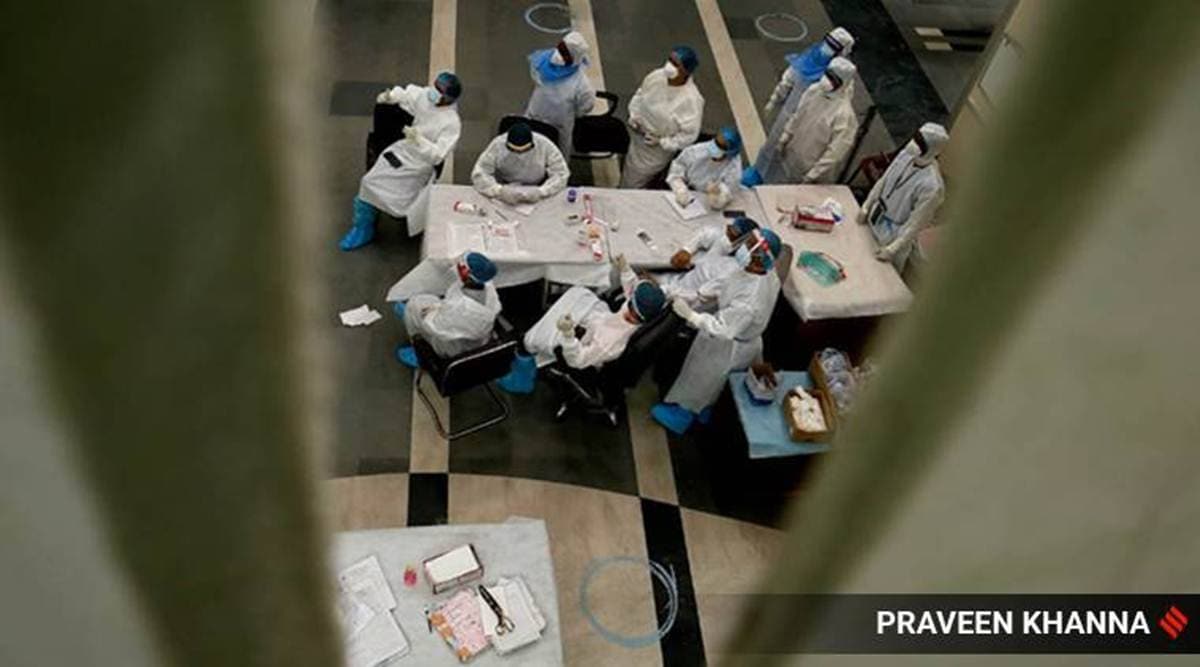 The study had a sample size of 516 individuals who had either come to the government system for treatment or vaccination. (Express/Representational)
The study had a sample size of 516 individuals who had either come to the government system for treatment or vaccination. (Express/Representational) Those above the age of 60 with comorbidities have a 15 times higher risk of getting a breakthrough Covid-19 infection — contracting the virus after hospitalisation — and are 10 times more likely to get hospitalised, a pre-print study by the public health department of Tamil Nadu revealed, proving the need for booster doses for these vulnerable people.
The government opened up India’s vaccination drive for a “precautionary dose” for the healthcare and frontline workers, and those above the age of 60 with comorbidities on January 10 this year amid a third Covid-19 wave, fulled by the omicron variant.
“The study is based on the analysis of the data routinely collected for all Covid-19 cases by the department and regular antibody tests of the participants. It clearly shows that age and comorbidities are significant risk factors for a breakthrough infection and hospitalisation. This is scientific evidence and our government policy is based also on these lines,” Dr K T S Selvavinayagam, the director of Tamil Nadu’s public health and preventive medicine department, said.
He added, “Unfortunately, this group is not coming forward to take the precautionary doses. The 60+ age group is a challenge, but they are the ones who need it. They keep saying that they don’t want another shot, maybe because they have already taken one or two doses, or because Covid-19 cases have been dipping around the country.”
The study had a sample size of 516 individuals who had either come to the government system for treatment or vaccination. Of the total, 52 persons were unvaccinated. The unvaccinated group was further divided into two — 25 with a reported history of natural infection, and 27 without it. The vaccinated group was also divided into two — 259 who received Covishield and 208 who got Covaxin.
Their blood samples were analysed for IgG antibody levels and the neutralising antibodies that specifically target the virus. Although the proportion of breakthrough infections reported was the same in both the Covaxin and Covishield groups, there was a significant drop in the antibody titre for those who received Covishield.
“Such decay of IgG was only observed among participants who received AZD1222 (Covishield), but not among those who received BBV152 (Covaxin) and those who had a history of recovery from a natural SARS-CoV-2 infection,” the study read.
It also found that with each month after the second dose, the neutralising antibody levels dropped 6 units, with the rate of decrease being faster in those above 60. The risk of developing breakthrough infections and subsequent hospitalisation gradually increased by 0.85 times each month.
On being asked whether this means that the entire population would need periodic booster shots, Dr Selvavinayagam explained, “Immunity is of two types — cell-mediated immunity (T cells, B cells etc) and humoral immunity (antibodies). Humoral immunity is known to go down with time, but the cells are primed to handle this. That’s long-lasting immunity. With current evidence, we cannot say whether we will need the booster doses. Further study is required to know the extent to which cell mediated immunity protects or for how long.”
Director General of the Indian Council of Medical Research on Thursday, in a press briefing, had said, “The jury on it is not out yet. We have seen that for flu, a yearly shot is effective. It is practiced for high-risk groups in India, but for the entire population in developed countries like the US and UK. We do not know whether the disease is at an endemic stage yet. Once that happens, we will be in a better position to understand whether these doses are needed.”
- The Indian Express website has been rated GREEN for its credibility and trustworthiness by Newsguard, a global service that rates news sources for their journalistic standards.

